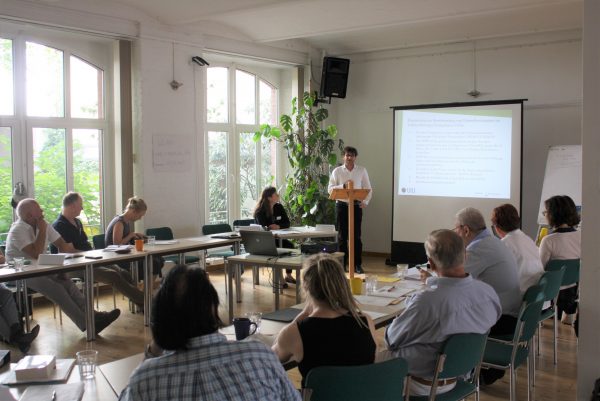18 July 2019
There are numerous legal possibilities to protect the environment! To ensure that legal professionals, environmental organisations and private individuals can navigate the labyrinth of legal frameworks, the Independent Institute for Environmental Issues, together with Client Earth and Justice & Environment, created a toolkit with helpful information and tips on the legal framework of judicial protection in environmental matters and how to take legal action to protect the environment.
As part of the international project “Access to Justice (A2J – EARL)”, other toolkits have also been launched for Estonia, Poland, Hungary, Slovakia, Austria, France and Spain. The project aims to improve access to justice for a greener Europe and is led by ClientEarth and Justice & Environment with the support of the European Commission LIFE programme.
- Zugang zu Gerichten in Umweltangelegenheiten in Deutschland – Toolkit (in German)
- international toolkits
- information on the project “Access to Justice (A2J – EARL)”
– Workshop / Training on “Current Issues of Access to Justice in Environmental Matters“, June 3, 2019 – Berlin –
In this context, regular events and workshops are offered with the aim to familiarize the public with EU environmental law and to promote professional exchange.
On June 3rd, the Independent Institute for Environmental Matters (UfU) organized a training on access to justice in the House of Democracy and Human rights in Berlin:

After a brief introduction to the project and the agenda of the current training by UfU employees Alexandra Tryjanowski and Louisa Hantsche (both fully qualified lawyers), highly qualified experts in the field of environmental law began with their specialist lectures.
Ursula Philipp-Gerlach, a renowned German environmental lawyer, gave an overview of the current case law on access to court. The presentation culminated in a brief discussion on the requirements of the Aarhus Convention and EU law on German environmental law. In a second lecture, the Frankfurt lawyer dealt with the financial aspects of environmental proceedings and the question to what extent the cost risk of court proceedings in Germany could be an obstacle to access to justice within the meaning of the Aarhus Convention. This topic was also taken up in the concluding discussion and financial risks were identified as a massive obstacle to the practice of smaller environmental organizations.
The current recognition requirements for environmental associations in Germany were presented by Daniel Lamfried from the Federal Environment Agency. UfU managing director and lawyer, Dr. Michael Zschiesche, added a commentary on the recognition of environmental organizations in the light of disputed compliance cases.
Matthias Sauer, head of the “Freedom of Information, Aarhus Convention, Environmental Liability Law, Better Lawmaking” department at the Federal Ministry for the Environment, talked about current focal points of the implementation of the third pillar of the Aarhus Convention.
Following the specialist presentations, the WWF case (ACCC/C/2016/137 Germany) regarding the recognition of associations, was discussed and the criterion of a functioning internal democracy was debated controversially. At the same time there has been a fruitful exchange between the participants on current challenges and trends of using legal remedies in environmental matters. Also, practical advice such as tips for the critical examination of reports underlying decisions and permits was exchanged.


